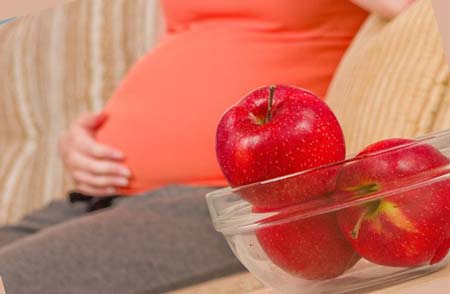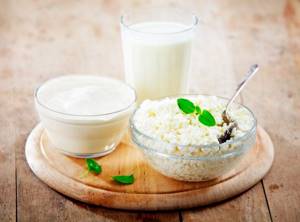A fasting day during pregnancy is a special diet when a specific product is consumed during the day for the purpose of general health, but due to the brevity of such a diet, the body does not experience stress and functions in a gentle manner.
However, only healthy people spend fasting days without a doctor’s prescription.
At the stage of bearing a child, the approach to organizing fasting days should be special, with the selection of food products that have no contraindications during pregnancy, taking into account the vulnerability of the woman’s body during this difficult period.
Indications for fasting days
The daily nutrition of the expectant mother falls under the definition of the “golden mean”. You cannot follow a strict diet and starve, but it is also not recommended to overeat for three.
Doctors recommend fasting days for such conditions and pathological processes.
- Obesity. This pathological condition leads to gestational diabetes mellitus, which causes obesity in the baby.
- Preeclampsia. Late toxicosis is accompanied by oxygen starvation of the fetus and a delay in its physical development, placental abruption, etc.
- Shortness of breath due to excessive weight gain during pregnancy in the second and third trimesters of pregnancy.
- Increased swelling of the extremities, caused not only by impaired kidney function, but also by the liver.
- Exacerbation of chronic diseases against the background of increased blood flow and weakened immunity.
- Digestive disorders accompanied by prolonged diarrhea or constipation.
- Diseases of the cardiovascular system, increasing with doubling of systemic blood flow.
For such medical indications, it is recommended to individually review the daily diet of the expectant mother, once a week to do a fasting day, but not a fasting day. Fasting is extremely dangerous for the development of the fetus, so we are talking only about a one-day light meal - https://nutrition.org/fasting-during-the-second-trimester-of-pregnancy-may-be-particularly-harmful/[2].
Benefits and harms
Fasting days really bring their benefits for the female body and the developing fetus:
- they improve ongoing anabolic processes;
- relieve stress from the gastric tract;
- cleanse the intestines;
- promote the removal of accumulated toxic substances from the body;
- eliminate excess fluid, thereby reducing swelling;
- speed up metabolism;
- improve kidney function.
If fasting days are carried out uncontrolled and without the supervision of a doctor, then a lack of nutrients entering the body of a pregnant woman may occur. And this will lead to improper development of the fetus itself and to a delay in its development. You should not unload during toxicosis. The emerging feeling of hunger will only intensify the approaching nausea.
Contraindications
If this is a woman’s first pregnancy, an inexperienced mother often experiments with her health.
There are clear contraindications for this procedure. This:
- underweight during pregnancy;
- diabetes;
- chronic diseases of the digestive and cardiovascular systems.
With special caution, this form of weight correction is recommended for patients with hormonal problems, bronchial asthma and a predisposition (presence) of food allergies.
Positive and negative sides
Gynecologists recommend that a pregnant woman perform unloading once a week, even in the absence of medical indications, for prevention - https://www.healthline.com/health/pregnancy/intermittent-fasting-while-pregnant[3]. It is difficult to overestimate the benefits of such a solution.
The main advantages of fasting days:
- cleansing the body of toxins, waste, poisons;
- enrichment with natural vitamins;
- normalization of blood pressure, water regime;
- elimination of puffiness and skin problems;
- rapid weight loss;
- strengthening vascular walls;
- normalization of digestion;
- improvement of metabolism;
- increasing the protective functions of the body;
- restoration of kidney function;
- strengthening the heart muscle;
- improving the condition of skin, hair, nails.
Carefully! There is no harm from complex unloading of the body. The only drawback is the limited menu, which can cause melancholy and despondency in the expectant mother. Also, with poor nutrition, chronic diseases can worsen.
Rules for holding a fasting day
If a pregnant woman gains more than 400 grams of weight per week, there is a problem.
To combat potential obesity, it is recommended to follow the following rules.
- If you are overweight, unloading should become the norm of everyday life.
- Choose 1 day a week to safely improve your digestive system.
- On this day, drink up to 2 liters of water, and additionally half a liter of rosehip decoction.
- Reduce portion sizes, but increase the number of meals to 4-5 times a day.
- Eat food every 3-4 hours, try not to wash it down with any liquid.
- If you feel very hungry, drink a glass of low-fat kefir and eat yogurt without sugar.
- Limit your intake of salt, sugar and spices, which delay fluid excretion.
- Use different options to enrich yourself with natural vitamins.
- Try not to eat food after 18.00. If you really want to eat, eat an apple or drink a glass of kefir.
- On such days, avoid excessive physical and emotional stress, rest more, get pleasant emotions from life and situation.
If you plan to eat fruit during pregnancy, it is advisable to consume up to 2 kg of the selected product per day, and up to 700 g per day on lean meat.

Don't overeat
The main rules for unloading during pregnancy
- It is better to start unloading in the evening, and do it no more than once every 8-9 days.
- You should not delay the intervals between meals. They should last no more than 4 hours. The number of doses per day is six times.

- The main consumption of food and water should occur in the morning and afternoon.
- It is advisable not to stress, to spend time calmly at home, among loved ones.
- Keep a glass of fermented milk product near you in case you become completely unbearable and want to eat.
- You should not eat fatty foods on this day - it is fats that contribute to unnecessary accumulation.
- The body should receive up to 1500 calories per day ; this norm should not be exceeded, nor reduced.
- You need to eat slowly, chewing thoroughly.
- In order not to obsess over food, take a walk in the fresh air, take your mind off your worries by watching an interesting film, or go to the theater.

- In the following days, you don’t have to get carried away with junk food or fast food; learn to control your diet.
- Fasting days for pregnant women with edema include minimal salt consumption.
- When preparing to become a mother, you need to understand that your actions should contribute to the normal growth and development of the baby.
The right way out of a fasting day
You can’t eat to your heart’s content the next day. In this case, the desired effect from unloading cannot be expected. A gradual exit from the “therapeutic diet” is recommended.
Sample menu for the day:
- breakfast: oatmeal with dried fruits and cereals;
- second breakfast: low-fat yogurt;
- lunch: light vegetable soup, boiled fish or meat;
- afternoon snack: a glass of low-fat kefir;
- dinner: stewed fish with vegetables, greens, tomato juice.
How to make a fasting day easier
Observation Spending it alone is sickening and depressing. It is recommended to find yourself a pleasant company; limiting food to two is much more fun and effective.
Other recommendations to make it easier to get through a difficult day.
- Find something to do, devote yourself to a hobby.
- Reduce the volume of plates.
- Always keep fresh fruit on hand.
- Don't be distracted for a while.
- Take a nap during the day and go to bed earlier at night.
Diet in the 1st trimester
Women gain most of their weight in the first trimester of pregnancy, this is due to the fact that expectant mothers think that by doing so they are helping the baby, but this is absolutely not the case.
During the entire pregnancy, it is best to follow a healthy diet and moderate physical activity; in this case, weight gain per week will be 290-340 grams, which is quite normal.
If you don’t adhere to these rules and eat everything in large portions, then in a week you can gain up to 1-3 kg, which is very harmful to your health.
In this case, fasting days in the 1st trimester of pregnancy are simply necessary:
- the fasting day should last at least 24 hours;
- during a fasting day, you should not engage in physical exercise or expose your body to active loads;
- on this day it is best to choose one or a couple of products that you will consume throughout the fasting day;
- the selected product must be divided into 5-6 doses;
- if you choose unloading on kefir, then drink not 1.5 liters per day, but choose kefir with 2.5% fat content;
- you can also unload using boiled potatoes, the kilogram should be divided into 6 doses, add 150 grams of sour cream;
- most people prefer to unload with cottage cheese, you will need 600 grams of it, plus you can add raisins;
- the simplest option would be boiled fillet; 500-600 grams per day will be enough.
How to eat in the 2nd trimester

Sour or red apples may also be contraindicated in certain diseases.
Fasting days in the second trimester during pregnancy are simply necessary. At this time, the fetus begins to actively grow, and the body experiences an unprecedented load on all organs.
In order not to further burden it, you should monitor your diet and use various options for fasting days for pregnant women.
- To begin with, you should reduce the consumption of foods with cholesterol several times, as they are hard on the liver.
- If you love scrambled eggs too much and cannot refuse them, then consume only the whites.
- You should not eat allergenic foods, which include strawberries and various exotic fruits.
- Fasting days are best spent on apples and kefir. You can eat a kilogram of apples per day.
- When unloading on kefir, use 1 kg of kefir or cottage cheese.
- You should completely eliminate the consumption of harmful foods and, of course, alcohol.
- The amount of liquid you drink should also be moderate.
Features in the 3rd trimester
The 3rd trimester of pregnancy is also not complete without fasting days. During this period, they should be carried out with a slightly different diet:
- in the third trimester it is best to consume fish;
- You should use lean fish (why you can’t eat fish oil), pike, pike perch or hake;
- Various fruit salads with kefir are perfect;
- you can unload on stewed vegetables or eat them fresh;
- You can use sweet peppers, onions, pumpkin, zucchini and tomatoes, as well as celery.
Also find out why low platelet levels are dangerous in pregnant women and why nosebleeds occur during pregnancy.
It is very important to consult a doctor at all stages. Don’t be afraid to ask about fasting days and what you can eat on these days. If you are rapidly gaining weight beyond the norm, then such days will only be beneficial.
Unloading rules for pregnant women: nuances of safe weight loss
You can arrange fasting days starting from the 28th week. During this time, the child’s organs will be fully formed and a gentle diet will not negatively affect its further growth in the womb.
There is no need to talk about obesity in the 1st trimester, since fat increases gradually throughout pregnancy and manifests itself “in all its glory” only by 5-6 months.

Thinking first of all about the health of their baby, expectant mothers worry whether it is possible to significantly reduce the volume of their usual diet during pregnancy in order to lose weight. Nutritionists confirm the benefits of such fasting, but only if important rules are followed.
First of all, the correct fasting day is compliance with the frequency and features of the chosen program for losing excess weight. If body fat increases up to 0.5 kg, then it is recommended to carry out 1 RD every 10 days.
For high rates, you need to unload once a week. In the second trimester, when the appetite is especially strong, you should not go hungry. At this time, the fetus is forming and needs nutrients.
Therefore, doctors strongly advise switching to proper nutrition and giving up:
- fatty and fried foods;
- smoked meats;
- confectionery and baked goods.
This will keep the weight normal and not harm the baby.
Food options
| View of the day | The essence | What to eat |
| Meat nutrition | During the day, you are allowed to consume only boiled lean meat, without salt. | In this case, you can use 400 g of boiled chicken meat (beef, veal, turkey), to your taste. You can also add vegetables and a glass of kefir. |
| Fruit day | Consumption of various fruit salads with yogurt or kefir dressing. | Use any favorite fruits and low-fat kefir or yogurt, divide your meals into 4 times. |
| Curd and berry day | It is best to carry out such unloading in the summer. You need to eat in small portions and only if you feel hungry. Water and tea help burn maximum fat. | 390 grams of cottage cheese and 750 grams of any berries are enough. |
| Mono-unloading | On such days, one product is selected and only that is consumed during the day. A great option after holidays and feasts. | Kefir, fruits, cottage cheese, meat, any low-fat foods that you like. |
| Apple days | Only baked or fresh apples are consumed for 24 hours. | Apples – 1.5 kg. Drink at least 2 liters of liquid per day. |
| Fermented milk unloading | In this case, your favorite fermented milk product is selected, which is consumed in small sips in 6 doses. | Yogurt, fermented baked milk, kefir, any product with no more than 1.5% fat content. |
| Juice day | During the day, you should maintain equal intervals between consuming freshly squeezed juices, 5-6 servings each. | Only natural freshly squeezed juices from any vegetables and fruits. |
| Composite unloading | It is necessary to cook compote, which is subsequently divided into 6 portions. | Fresh fruit compote with added sugar if desired, for 2 liters of water, use 1 kilogram of fruit and four tablespoons of sugar. |
| Vegetable day | Vegetables raw, boiled or baked. | Any vegetables, approximately 1.5 kg per day. Small amounts of sour cream or vegetable oil are allowed. |
| Fasting potato day | 5-7 servings per day. | 1 kilogram of boiled potatoes and a couple of glasses of kefir are enough. |
| Buckwheat day | Buckwheat settled in a container. | It is necessary to boil buckwheat and leave it to infuse overnight, then divide the intake into equal portions throughout the day. You need approximately 200 g of buckwheat. |
| Curd diet | 4-7 servings per day. | It is necessary to divide the cottage cheese into 7 portions, approximately 80 grams each. |
Authorized Products
If the expectant mother decides to fast, the main thing is to decide on the main food product.
List of allowed food ingredients:
- lean varieties of meat, fish;
- seafood;
- low-fat dairy products;
- fresh vegetables, fruits, berries;
- cereals (rice, buckwheat);
- natural juices, unsweetened compotes, berry fruit drinks.
You can alternate the menu to make food deprivation easier to bear throughout the day.[4]

Sometimes you need to include such days in your diet
Table of permitted products
Here's what you can safely eat and in what quantities:
| The product's name | Portion, g |
| cottage cheese | 500-600 |
| kefir | 1 500 |
| apples | 1 500 |
| buckwheat | 220 |
| vegetables | 1 500 |
| proteins (beef, chicken fillet) | 500 |
| unsweetened drinks | 1 000 |
Fully or partially limited products
While fasting, it is important to avoid fatty, fried, spicy and smoked foods high in salt and spices.
The list of prohibited ingredients does not end there:
- culinary, animal fats;
- chocolate, coffee, cocoa;
- alcohol carbonated drinks;
- legumes;
- fatty meats and fish;
- eggs, honey;
- fatty varieties of cheeses, fermented milk products.
Table of prohibited products
It is better to refuse this.
| Prohibited Products | Sugar |
| canned fish | honey |
| animal fats | chocolate |
| salt | potato |
| carbonated drinks | jam |
| fat kefir, cottage cheese | condensed milk |
How much can you lose?
It is known that our women can endure a lot in their pursuit of beauty. And such a delicious fasting day with ease. The main thing here is proper preparation and holding of such a day. If you follow the chosen recipe and serving sizes exactly, you can say goodbye to a whole kilo of those that you consider unnecessary in a day. On average, it takes from 500 gr. up to 1.5 kg.
Cottage cheese is preferable for fasting days, since it has so many wonderful chemical compounds that can saturate the body with proteins, fats, and carbohydrates. And the calorie content of one hundred grams of this product does not exceed 170 kilocalories.
Types of fasting days
There are many varieties available. Every pregnant woman will choose a delicious option for herself and within a day she will rejoice at the result.
The most effective types of fasting days
Expert opinion Olga Borovikova The choice of diet is carried out individually. The gynecologist takes into account the wishes and taste preferences of the expectant mother, selects a menu that is as pleasant and healthy as possible in each case.
Apple
If you consume 0.5 kg of unsweetened apples during the day, up to minus 1 kg per week is guaranteed. The fruits can be eaten fresh or made into a salad with low-fat yogurt.
Fasting day on watermelon
This option is suitable for pregnant women in the summer, when melons are available and inexpensive. It is recommended to consume up to 1 kg of fresh watermelon per day and drink the same amount of liquid.
Vegetable day
On this day you are allowed to consume 1.5 kg of fresh vegetables. This can be all types of cabbage, corn, pumpkin, bell peppers and fresh cucumbers. Certain food ingredients are allowed to be stewed or baked in the oven, but do not add salt.
Rice-compote
We are talking about brown rice, which is boiled in the amount of 1 cup per day. It is advisable to avoid adding salt, and diversify the taste of the cereal with bell peppers, apples or lemon juice. You can drink sour compote made from unsweetened berries and fruits.
Fermented milk
The main food ingredient is 1.5 liters of low-fat kefir. The expectant mother is allowed to supplement the daily menu with 100 g of low-fat cottage cheese or cereal yogurt.
Other types of fasting days
Expert review Olga Borovikova The so-called “hungry days” give rest to the digestive system, normalize intestinal motility, and provide a feeling of lightness. But we are not talking about a strict hunger strike, but about proper nutrition.
Fish
A pregnant woman is recommended to eat 400 g of boiled or baked lean fish per day. You can diversify the daily menu with a salad of fresh vegetables with the addition of olive oil.
Potato
To relieve digestion, it is recommended to boil or bake 2 kg of fresh potatoes in the oven. Additionally, the daily menu is allowed 2 glasses of low-fat kefir per day. It is advisable to divide the specified amount of food into 4-5 meals.
With meat and fresh vegetables
The main ingredients are 400 g of low-fat meat and 800 g of fresh vegetables. In the first case, preference is given to chicken, rabbit, and lean varieties of meat. In the second - about bell peppers, cabbage, pumpkin, corn. Eat food 4-5 times a day in small portions.
Buckwheat
It is recommended to pour 1 cup of cereal with 2 cups of boiling water in the evening and leave for 12 hours. Distribute meals throughout the day; in addition, you are allowed to consume low-fat kefir in the amount of 2 glasses.

Avoid this
Berries with cottage cheese
In this case, the main ingredients are 400 g of low-fat cottage cheese, 1 kg of unsweetened berries. It is advisable to completely eliminate sugar and sour cream. To soften the curd mass, it is recommended to use low-fat yogurt or milk. Choose fresh berries, according to the season.
Juice day
You can prepare a healthy drink from vegetables, unsweetened fruits and berries without adding even a minimal amount of sugar.
On fruit salad
Preference is given to apples, strawberries, kiwi, watermelon, citrus fruits, dried fruits and bananas.
Seafood with stewed vegetables and mushrooms
They can be boiled or baked, and as a side dish it is better to eat stewed mushrooms or vegetables, but in strictly limited quantities.

But even in the early stages they are not harmful
Fasting day for edema
To get rid of visible swelling, it is recommended to lead an active lifestyle and eat right.
Valuable recommendations regarding daily diet.
- Reduce your salt intake, which inhibits the removal of fluid from the body.
- Avoid fried, fatty and spicy foods, which also create favorable conditions for the formation of edema.
- Consume more fresh vegetables and fruits, herbs, and natural antioxidants in your daily diet.
- Drink up to 2 liters of clean water per day, excluding other types of drinks, including first courses.
- For snacks, choose low-fat yogurt and kefir, fresh berries and fruits.
- Steam, bake, boil and stew food at low temperatures.
- Eat food in small portions, but increase the number of meals to 4-5 per day.
Swelling begins to subside at the end of the first week after adequate correction of daily nutrition.[5]
Protein diet for pregnant women
You can eat these food ingredients in the following quantities:
- breakfast: low-fat cottage cheese in the amount of 200 g;
- second breakfast: 100 g of low-fat cheese;
- lunch: 100 g of fresh cucumber and white cabbage salad;
- afternoon snack: low-fat cottage cheese 100 g, baked apple.
- dinner: 200 g of boiled chicken, optional with vegetables.
Tips for choosing a menu
During pregnancy, a woman must adhere to two basic rules:
- get normal amounts of all nutrients, vitamins and minerals;
- do not overload the digestive tract.
For this reason, it is recommended to eat a balanced diet, monitor calories and eat more often, but in small portions.
It is also necessary to observe the drinking regime:
- In the first trimester, you should focus on foods rich in protein (boiled meat, fish, cottage cheese) and fiber. Your diet should also include fresh fruits, vegetables and herbs.
- In the second trimester, you also need to eat fish or meat at least 4-5 times a week, but also add more plant and dairy foods to the menu.
- In the third trimester, products that are difficult for the digestive system and require long processing (fish, meat) should be gradually eliminated.
Preferred cooking options are stewing, baking, boiling and steaming. Vegetables, fruits and greens are best eaten raw. But fried, fatty, spicy, salty foods, smoked foods, fast food and semi-finished products will have to be excluded, because apart from heaviness in the stomach and excess weight, they do not give anything.
Nutrition during pregnancy is of great importance for both the expectant mother and the baby.
It is very important that a woman focuses on fresh vegetables and fruits, even better - grown ones, often eats lean fish and meat and receives all the necessary nutrients. To prevent your baby’s health from becoming a cause of excess weight, you need to regularly hold fasting days.
Is it dangerous when carrying a fetus?

Nutritionists advise doing them once a week.
Fasting days during pregnancy can be not only useful, but also dangerous. That is why it is worth consulting with a doctor in advance, who will prescribe for you a diet that is harmless to the baby.
It is also worth considering that unloading may be prohibited for some pregnant women due to the presence of various diseases:
- fasting days on meat cannot be carried out if the pregnant woman suffers from problems with the heart or has diseases of the digestive system;
- expectant mothers with the problem of atherosclerosis are recommended to constantly unload on fermented milk products;
- for hypertension and kidney problems, you should unload on cucumbers, apples or watermelon.[6]
With proper unloading, you can get rid of 800 grams per day, excess fluid will go away, and swelling will go away. Also find out everything about CTG during pregnancy.
Cottage cheese and pregnancy
Fermented milk product is useful for everyone, and especially for pregnant women. Although it has been established that it is not a record holder for calcium content, there is about 120 mg per 100 g of product. What is missing there is protein, light and vital. The benefit of cottage cheese for pregnant women also lies in the ability to gently relieve constipation, thanks to the large number of lactobacilli contained in it.

Specifically, how cottage cheese is useful for pregnant women:
- calcium for proper bone formation in the fetus and compensation for its losses in the mother;
- amino acids and protein for the normal development of organs and tissues;
- vitamins A, C, D, E and group B to support all body functions;
- lactobacilli to normalize digestive processes.
But cottage cheese for pregnant women should not be the only product on the menu. It may have a pleasant taste, but it should be used wisely. The product carries a certain burden on the kidneys, so you need to eat it carefully in case of such diseases. It is not recommended to eat large quantities of curd products during exacerbations of gastritis or ulcers.
Cottage cheese for pregnant women, if desired, can be replaced with other cheeses rich in calcium - hard cheeses, a little feta cheese, you can eat mozzarella. But it’s better not to eat Camembert, Brie and other blue cheeses. They contain a lot of water and few acids, which promotes the growth of pathogenic bacteria.











